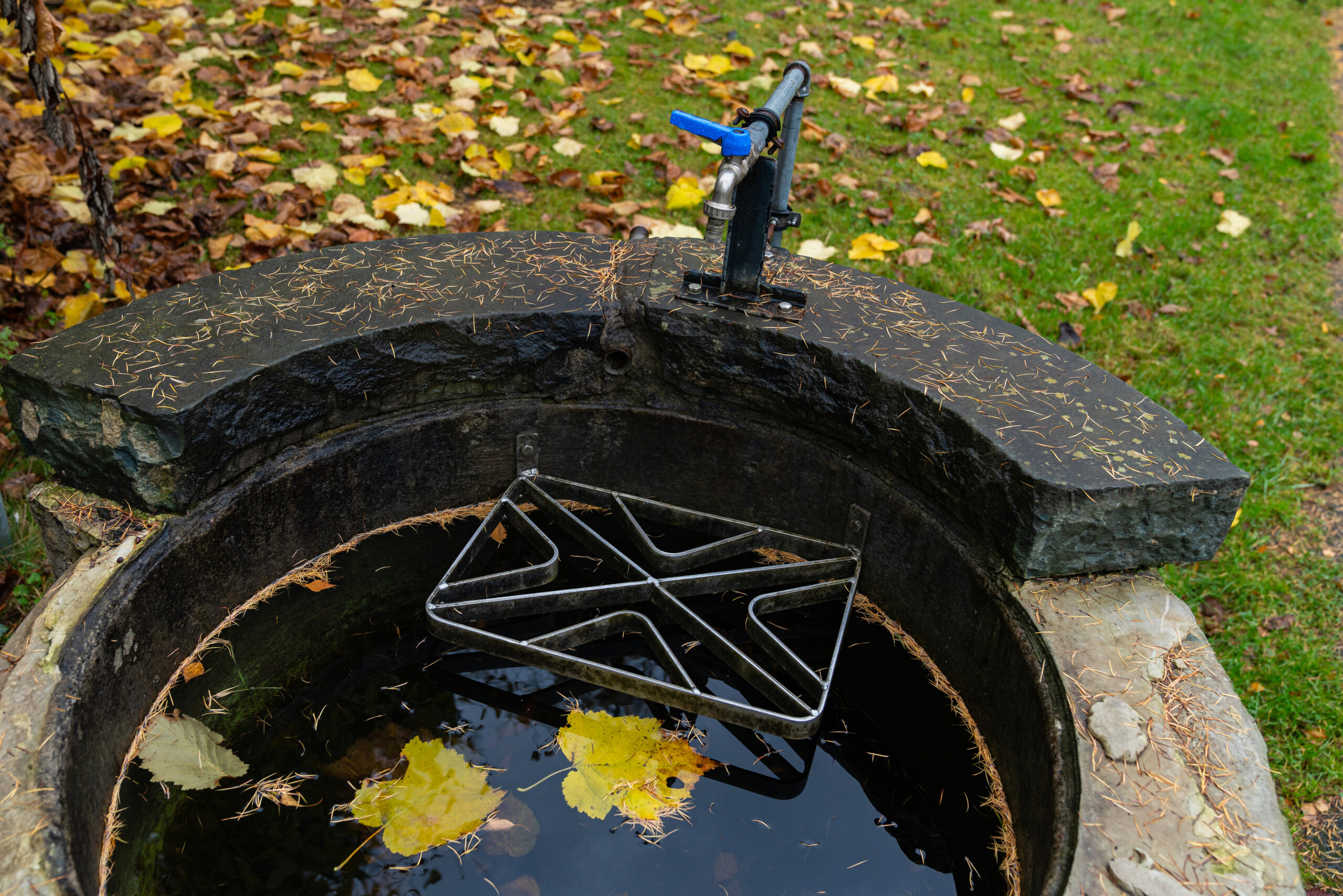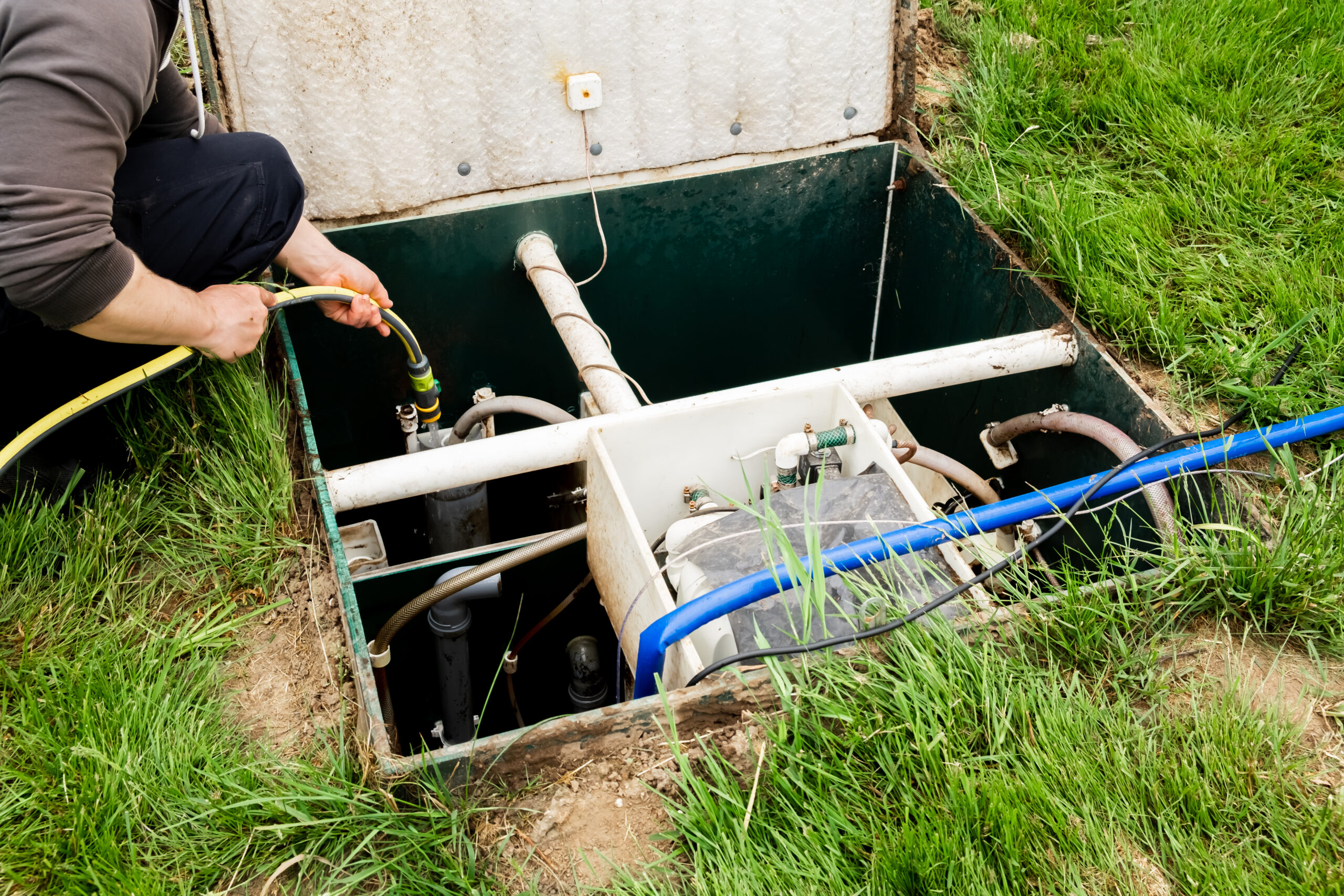If you’ve ever wondered where all that water goes after you flush the toilet or take a shower, you’re thinking about wastewater. But here’s something you might not know: not all wastewater is created equal.
Understanding the greywater and blackwater difference is essential for anyone with a septic system, and it can make a real impact on your wallet, your property, and the environment.
What Is the Difference Between Greywater and Blackwater?
Let’s start with the basics. Your home produces two main types of wastewater, and they’re quite different from each other.
Understanding Greywater
Greywater is the relatively gentle wastewater that comes from your bathroom sinks, showers, bathtubs, and washing machines. Think of it as the water that’s been used but isn’t heavily contaminated. When you wash your hands, take a relaxing shower, or run a load of laundry, you’re creating greywater.
The main things floating around in greywater are soaps, detergents, and small amounts of organic matter like hair or skin cells. While it’s definitely not drinking water anymore, greywater is far less dangerous than its counterpart. It contains relatively few pathogens and breaks down quickly in the environment.
What Makes Blackwater Different
Blackwater, on the other hand, is the heavy hitter of household waste. This is the water from your toilets, and sometimes from kitchen sinks and dishwashers, where food scraps and grease end up. Blackwater contains human waste, which means it’s loaded with pathogens, bacteria, and organic solids that can pose serious health risks.
Because of what it contains, blackwater treatment requires much more intensive processing before it can be safely returned to the environment. It’s not something you can casually reuse without extensive treatment, and it puts considerably more strain on your septic system.
Why This Matters for Your Septic System
Now that we’ve covered what is the difference between greywater and blackwater, let’s talk about why this knowledge is crucial for your septic system’s health and longevity.
The Impact on Septic Tank Maintenance
Your septic tank works hard to break down and treat all the wastewater your household produces. But greywater and blackwater don’t affect your system equally.
Greywater decomposes faster and contains fewer stubborn solids, meaning it passes through your system more easily.
Blackwater, however, requires your septic system to work overtime. The organic solids and pathogens need time to break down through bacterial action in your tank. If your system gets overwhelmed with too much blackwater or isn’t maintained properly, you risk backups, drain field failure, and expensive repairs.
Regular septic tank maintenance becomes even more important when you understand what your system is processing. Pumping your tank every three to five years, being mindful of what you flush, and watching for warning signs can prevent disasters down the road.
Extending Your System’s Lifespan Through Smart Water Management
Here’s where things get interesting. If you can reduce the amount of water flowing into your septic system, you’re essentially giving it a lighter workload. This is where greywater systems come into play.
By diverting greywater away from your septic tank and reusing it for purposes like landscape irrigation or toilet flushing, you can significantly extend the life of your drain field. Less water means less hydraulic load, which means your soil absorption system isn’t constantly saturated. This simple change can add years to your system’s functional life and save you thousands in replacement costs.
Also Read: How Septic Systems Work: An Illustrated Guide for Homeowners
Water Conservation Through Greywater Recycling
Understanding wastewater treatment at home isn’t just about keeping your septic system happy. It’s also about being a good steward of our water resources. Since greywater makes up about 50 to 80 percent of residential wastewater, reusing it can dramatically reduce your household’s freshwater consumption.
After simple filtration or treatment, greywater can safely water your garden, fruit trees, and ornamental plants. Some advanced systems even clean it enough for toilet flushing. Every gallon of greywater you reuse is a gallon of fresh water you don’t need to draw from wells or municipal supplies.
Cost Savings That Add Up
Let’s talk money. When you implement greywater systems, you’re not just helping the environment but also reducing your water bills. Homes with greywater recycling systems can see significant savings over time, especially in areas where water is expensive or where drought conditions lead to usage restrictions.
Additionally, by reducing the load on your septic system through greywater diversion, you’re potentially spacing out pump-outs and reducing wear and tear on your drain field. The initial investment in a greywater system can pay for itself through these combined savings.
Treatment Options for Each Water Type
The approach to treating greywater versus blackwater is quite different, and understanding these options helps you make informed decisions about your home’s wastewater management.
Simple Solutions for Greywater
Greywater treatment doesn’t need to be complicated. For basic garden irrigation, a simple diversion system with sand or gravel filtration can work wonders. Some homeowners use constructed wetlands or biofilters that naturally clean the water using plants and beneficial microorganisms.
More sophisticated greywater systems might include multi-layer filters, activated carbon units for removing oils and chemicals, and UV disinfection for extra safety. The key is matching the treatment level to your intended reuse. Watering non-edible plants requires less treatment than using greywater for toilet flushing.
One important tip: using low-sodium, biodegradable detergents makes your greywater much safer and easier to reuse. Harsh chemicals and antibacterial soaps can harm plants and soil microorganisms.
Comprehensive Blackwater Treatment
Blackwater treatment is a different beast entirely. Your septic system handles this through multiple stages. First, solids settle and separate in the tank. Then, beneficial bacteria break down organic matter over time. Finally, the liquid portion moves to your drain field, where soil microorganisms provide additional treatment.
For municipal systems or more advanced on-site treatment, blackwater goes through primary screening and sedimentation, secondary biological treatment using activated sludge or biofilm reactors, and sometimes tertiary treatment with advanced filtration and disinfection. Only after these intensive processes is treated blackwater safe for discharge or limited reuse.
Some innovative systems even convert blackwater treatment into an opportunity by using anaerobic digesters that produce biogas from organic waste. This turns a waste management challenge into an energy source.
Also Read: How Septic Systems Work: An Illustrated Guide for Homeowners
Practical Considerations for Homeowners
If you’re thinking about implementing greywater systems or just want to be smarter about your septic system management, here are some practical points to consider.
Regulatory Compliance
Before you start diverting greywater, check your local regulations. Many areas have specific codes about greywater reuse, including how it must be treated, what it can be used for, and how systems should be designed. Some regions enthusiastically support greywater recycling with streamlined permitting, while others have more restrictive rules.
Design Matters
A well-designed separation system is crucial. Your plumbing needs to be set up correctly to keep greywater and blackwater streams separate. This might mean some retrofitting in existing homes, but the long-term benefits often justify the upfront work.
Remember that kitchen sink water is sometimes classified as blackwater due to food particles and grease, so factor this into your planning.
Maintenance and Monitoring
Any wastewater system requires attention. Greywater systems need periodic checks to ensure filters aren’t clogged and that treated water meets safety standards for its intended use. Your septic system requires regular inspections and pumping to function effectively.
Conclusion
Whether you’re considering a greywater recycling system or simply want to understand your septic tank maintenance needs, the first step is recognizing that not all wastewater is the same. By understanding your system, you can protect your septic tank, save on long-term costs, and contribute to a healthier planet.
Need an expert inspection? Septic Masters offers comprehensive septic tank inspection services to ensure your system is running efficiently. Get in touch today to schedule your inspection and take the first step toward optimal system health!




